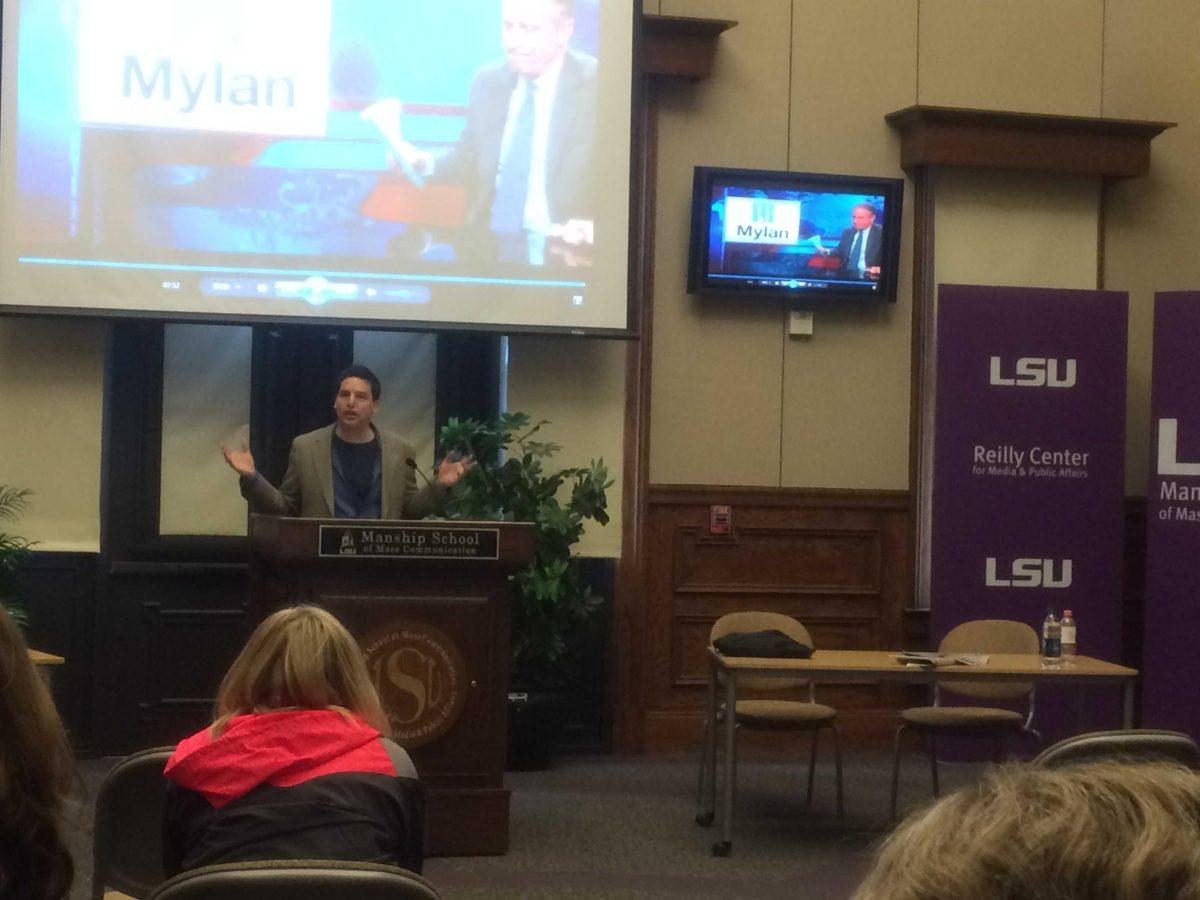Media consumers may have more access to information than ever, but they still need to check the facts.
The Manship School of Mass Communication hosted “Just the Facts,” a panel with local and national journalists and fact-checkers on Saturday to discuss keeping the facts straight when journalism runs at a faster pace than ever.
Speakers and panelists included faculty, journalists and researchers from Comedy Central’s The Daily Show with Trevor Noah, the American Press Institute, Snopes.com, the Pulitzer Prize-winning PolitiFact project, New Orleans’ The Lens, NOLA.com, The Advocate and the Manship School.
Topics included using social media as a fact-checking tool, verifying presidential candidates Marco Rubio and Donald Trump’s “tiny hands” debate, investigative reporting and maintaining the humor in satirical journalism while sticking to the truth.
The Daily Show’s senior producer Adam Chodikoff, who has worked with Jon Stewart and Trevor Noah since the show’s inception in 1996, said people cannot go on the Internet and always expect to see facts, especially if they get their news from Facebook.
People need to rely on verified sources such as The Washington Post and CBS News, he said, before relying on information someone sends them or shares on social media.
“Trust your gut,” said Austin American-Statesman and PolitiFact Texas writer and editor W. Gardner Selby. “If something doesn’t sound right, it might not be.”
An example, Selby said, is the current developing Louisiana story about taxes going up starting April 1. If readers don’t know whose taxes go up by how much, they need to find out more and ask questions.
“You sort of have to take a deep breath every time and go, ‘Well, if this is so, then there will be some substantial news reporting behind it,” Selby said. “And you should be able to search that up.”
Selby said to use Nexus, Google News, PolitiFact, FactCheck.org, Snopes.com or any of the fact checking outlets.
All citizens have to consider the facts, Selby said, not just journalists. No matter a person’s profession, they have to work on facts rather than opinion or satire websites that are generating “ridiculous” rumors on social media when people think it is true without “checking it out.”
Despite fake news taking up social media space, Selby said finding the truth is easier than before because now there is more fact checking. Once you check a particular claim, he said, it stays on the web years later.
“It doesn’t take more than just one Google,” Selby said.
Manship School hosts fact-checking panel
By Sarah Gamard
March 13, 2016
The Manship School of Mass Communication hosted a panel Saturday, March 13, on fact-checking.
More to Discover








